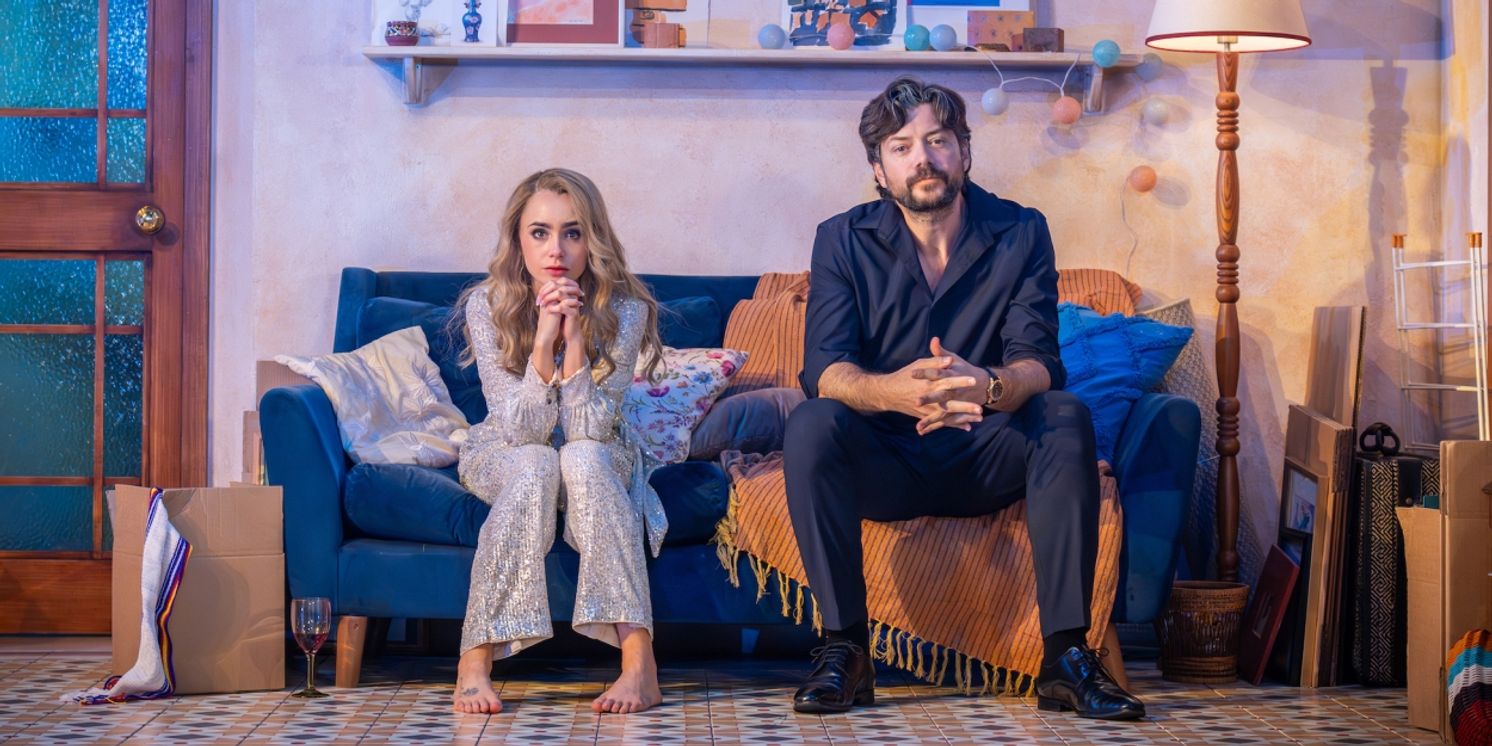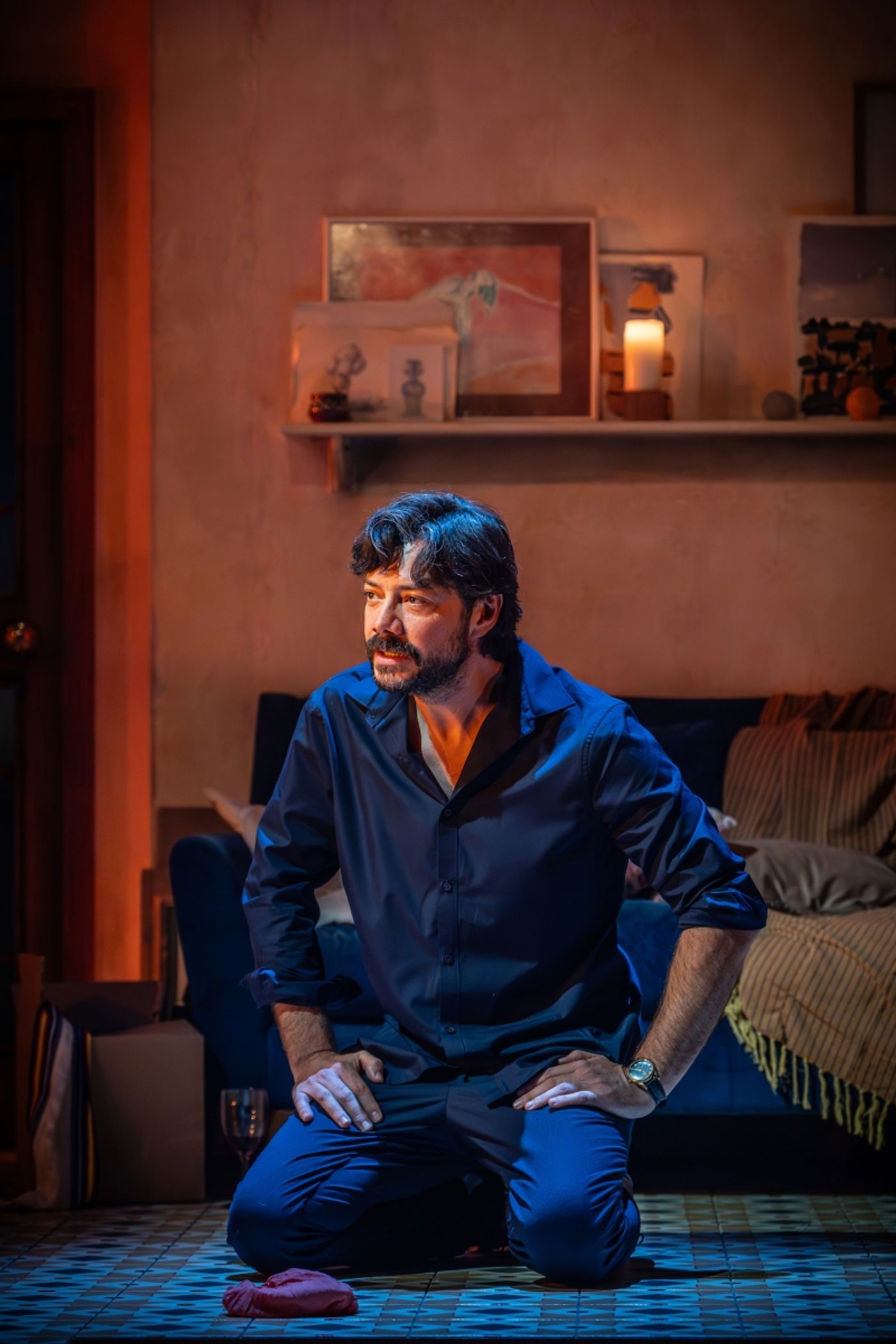Review: BARCELONA, Duke of York's Theatre
Lily Collins and Álvaro Morte make their West End stage debuts

![]() West End theatres are currently looking more and more like a set of billboards featuring famous film and TV actors. The debate on what this adds or takes away from the theatrical scene continues, with huge successes such as Ben Whishaw in Waiting For Godot, but also abject failures, such as Lily James and Kristin Scott Thomas in Penelope Skinner’s lamentable Lyonesse.
West End theatres are currently looking more and more like a set of billboards featuring famous film and TV actors. The debate on what this adds or takes away from the theatrical scene continues, with huge successes such as Ben Whishaw in Waiting For Godot, but also abject failures, such as Lily James and Kristin Scott Thomas in Penelope Skinner’s lamentable Lyonesse.
The latest iteration of this trend comes from Lily Collins (Emily in Paris) and Álvaro Morte (Money Heist) who are both making their West End debuts in Bess Wohl's play Barcelona.
A couple crash through the door of a Barcelona apartment in a passionate embrace, but this ardour quickly cools as cultural and personal clashes take over. Collins and Morte are both impressively natural on stage, but without their billing, it is highly doubtful this play would have made it to the West End.

Nevertheless, Collins creates a convincing, one dimensional stereotype of a brash American abroad: obnoxiously patriotic, rather arrogant, incessantly talking with her main comment being that things in Spain are "so cute". She is also funny, leaning into the vacuous elements of the role. The audience quickly makes a judgement about her, even as it becomes apparent that she is unsure of her life choices.
Acting drunk on stage rapidly becomes tiring for the audience and Collins sensibly curtails her initial staggered articulation, maintaining uneasy motion and rapid-fire delivery to show her intoxication. Yet, despite revelations about her life, relationships and sudden attachment to Manuel, the character never feels quite rounded enough to really care about.

A very charismatic Álvaro Morte has more to work with as Manuel and is suave and quietly controlled in an understated, yet increasingly compelling, performance. His smooth exterior and laid-back attitude hides some very jagged emotions. Morte peels back the layers of the man, so his vulnerability is only visible to the stranger in front of him.
At 90 minutes straight through, Lynette Linton's pacy direction deftly moves between genuine comedy to darker, more serious themes and back again. There is speed when necessary, but quieter moments are given space to breathe.
The ill-advised hook-up that quickly stutters and the couple's arguments feel authentic; shouting over each other, voices and frustrations rising higher and higher. There are twists in the tale; some obvious, some less so. But overall, the production fails to rise above feeling contrived: it doesn't ring true that Manuel fails to ask Irene to leave as soon he tires of her and it also seems odd that Irene herself would run to the door, but not actually leave when things take on a more sinister tone.
Frankie Bradshaw's lovely set takes us into a typical lived-in Barcelona flat, with its curved terracotta ceiling tiles, tiny kitchen and a big window apparently overlooking the Sagrada Familia, all lit by Jai Morjaria's atmospheric lighting.
The decision to project shadowy outlines of a dancing girl onto the back wall of the flat, reflecting the ghostly presence of another woman is less successful. This too feels contrived and undermines the audiences' ability to piece the story together.
At times, Barcelona is a funny and entertaining play. It fails to say anything particularly interesting or new, but strong performances from both actors will ensure that the fans camped outside will rush to buy a ticket.
Barcelona runs at The Duke Of York’s Theatre until 11 January 2025
Photo Credits: Marc Brenner



